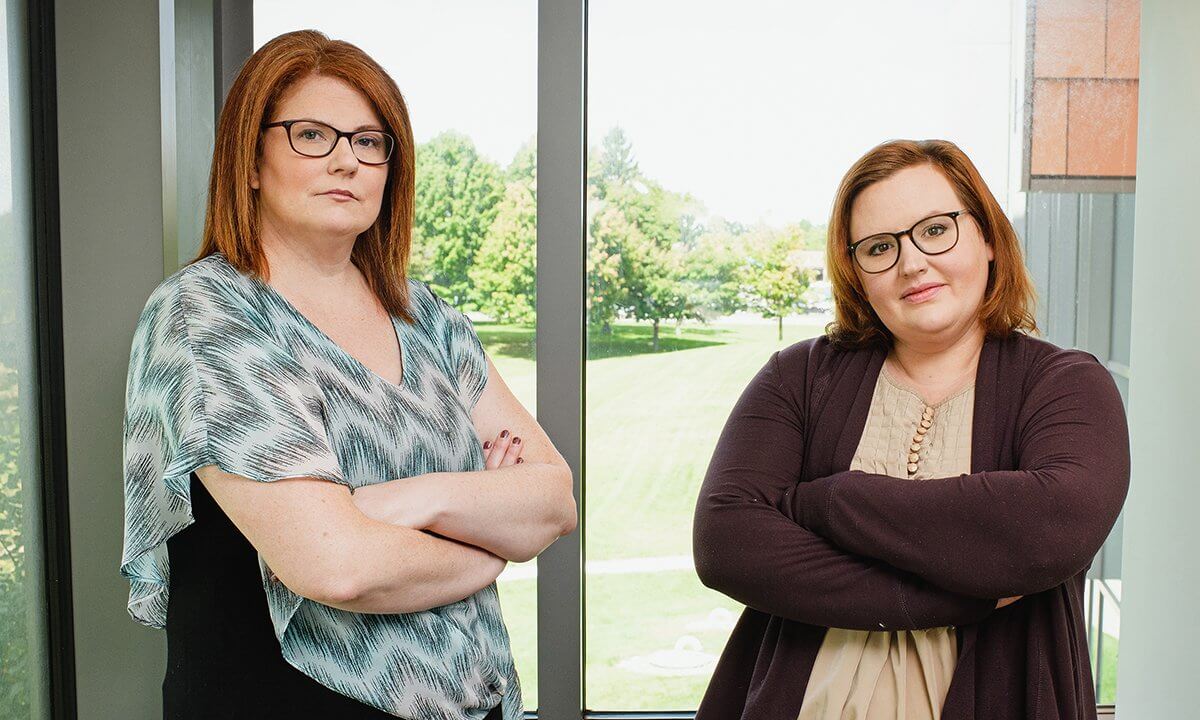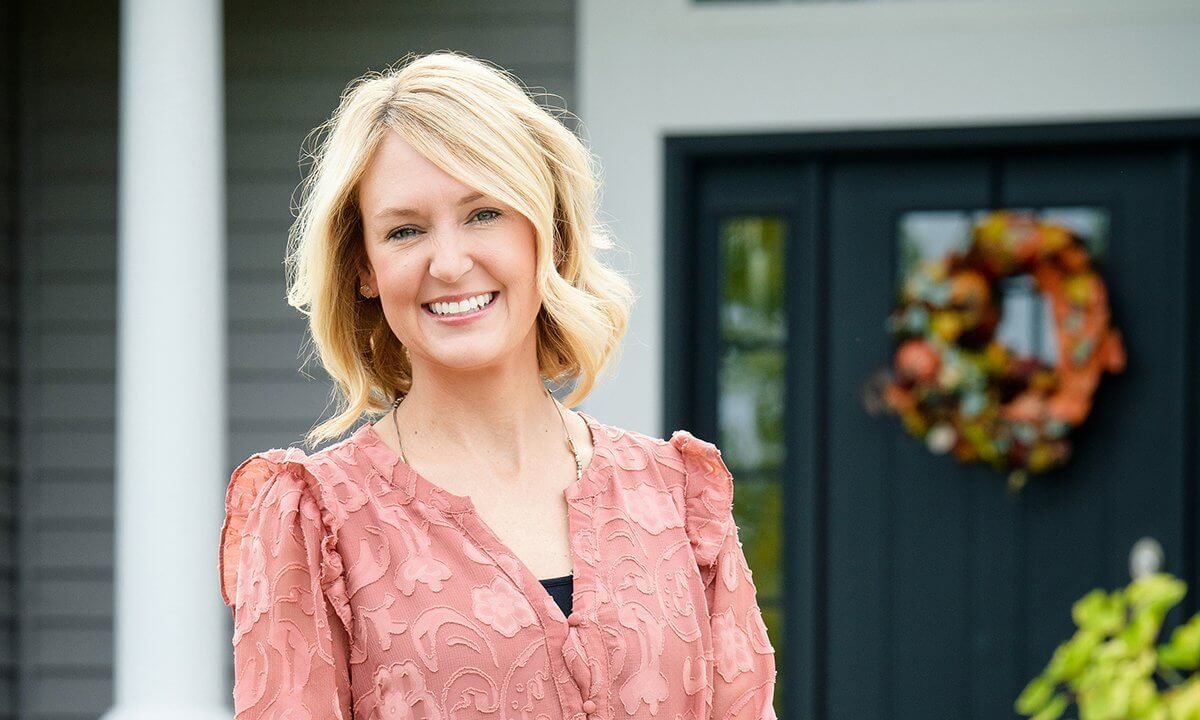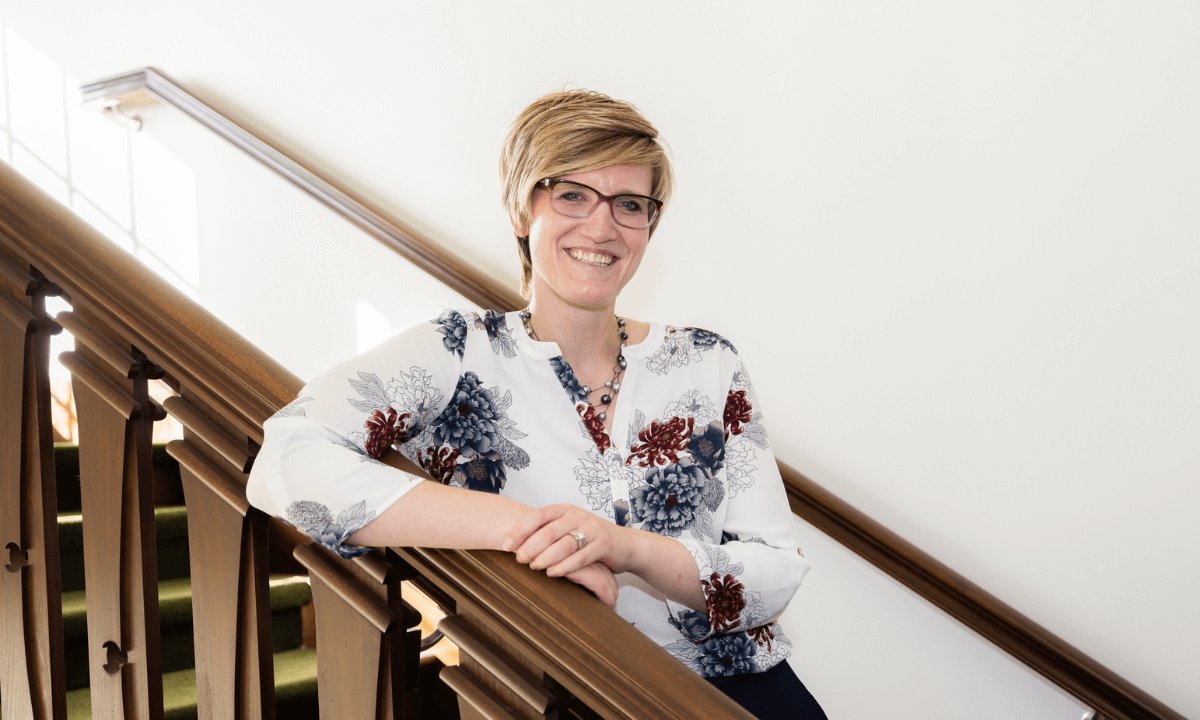Working on the Frontlines Comes at a Cost
Overcoming PTSD During the COVID-19 Era
As nurses continue to provide care for patients during the pandemic, they must also focus on their own health needs, as proven by faculty research.
As a nurse practitioner in an emergency department in Detroit, assistant professor Joanna Hernandez, DNP, RN, AGACNP-BC, started noticing the rising number of COVID-19 patients who were acutely ill this spring. Unfortunately, the virus was not well understood at the time, as very little literature was available about proper treatment and management, leading to high stress for Hernandez and her colleagues.
“There was one day I saw a patient having CPR with a limited number of healthcare providers allowed in the room, while another patient needed to be on a ventilator, yet refused to use one, as she wanted to save it for someone else,” Hernandez said.
Not to mention, although she had access to proper protective equipment (PPE) during every shift, many nurses had to reuse theirs. The stress of Hernandez’s surroundings were so overwhelming at times that she often went home exhausted and in tears. After all, she was not only tired of wearing PPE all day, but she was also overwhelmingly concerned about transmitting COVID-19 to her husband and children.
While reflecting on the impact COVID-19 was having on her emotions overall, she began to wonder what bedside nurses were feeling on a daily basis. Deciding to evaluate the risk of post-traumatic stress disorder (PTSD) in the nursing population, she—along with assistant professor Kristen Munyan, DNP, RN, FNP-BC, and associate professor Gary Moore, PhD, RN—also sought to explore whether or not bedside nurses have appropriate PPE for each of their shifts.
“We were also curious to see if there was a relationship between COVID-19 and nursing retention,” Munyan stated. “So we conducted our research online, utilizing a survey, and we used social media to obtain participants—specifically, a link to the survey was placed in nursing COVID-19 groups on Facebook for a two-week period.”
After conducting the survey, Hernandez, Munyan and Moore discovered that a majority of participants had a positive score for PTSD. Many nurses also discussed how difficult it was to obtain and use PPE. In fact, one participant even mentioned that their hospital’s policy prohibited nurses from wearing PPE, unless their patients have tested positive for COVID-19.
The bottom line? COVID-19 is far from over. In actuality, nurses are still very much in the midst of the pandemic, and there are no signs it won’t be staying around for a while longer. And, as a result, nurses have been at their patients’ bedsides, providing care in ways they never had before, an all too common daily reality, which may continue for years to come.
“As proven by our research, the pandemic has not only changed patients’ lives, along with their loved ones’ lives—it’s also changed nurses’ lives forever,” Hernandez stressed. “Nurses, after all, have been at the front of the line, leading the pack, since the pandemic began.”
She continued, “And although nurses have proven over and over that they’re resilient, they’re also human. We, as nurses, must remember to take care of ourselves, whether we’re encountering issues with PTSD or PPE, so that we can continue to care for others.”
For more information about this study, contact Joanna Hernandez at [email protected].

 December 03, 2020
December 03, 2020
 By Chris Lewis
By Chris Lewis



